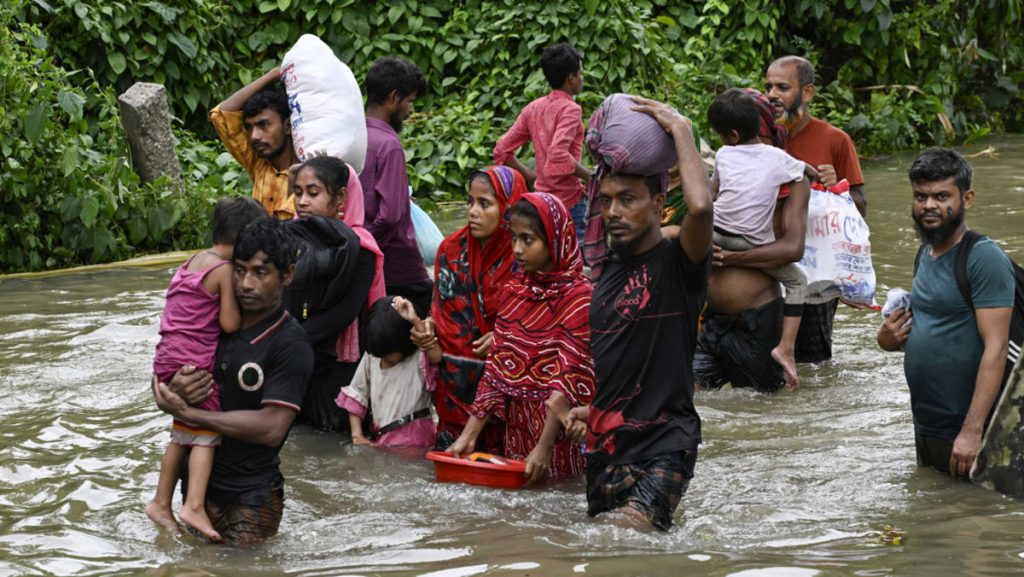In Tripura state, India, devastating floods have claimed the lives of more than 23 people since Monday. The state has been battling the aftermath of heavy rains and flash floods, which have caused extensive damage to infrastructure and homes. The disaster has left a trail of destruction, with many people displaced from their homes and struggling to access basic necessities such as food and clean water. The situation remains critical, with rescue efforts ongoing to assist those affected by the floods.
Bangladesh has also been severely impacted by the floods, with the disaster management ministry reporting a death toll of 15 people. The fatalities were recorded in cities along the southeastern coast, including Chittagong and Cox’s Bazar. These areas are home to a large population, including around a million Rohingya refugees from Myanmar. The floods have caused widespread devastation in these regions, leaving many people homeless and in urgent need of assistance. Emergency relief efforts are underway to provide shelter and support to those affected by the disaster.
In addition to the coastal cities, areas east of the capital Dhaka have also been badly hit by the floods. The city of Comilla, located near the border with Tripura state in India, has been severely affected, with many people struggling to cope with the aftermath of the disaster. Thousands of people have been evacuated to emergency relief shelters, where they are receiving assistance from relief agencies. The floods have disrupted normal life in these regions, with people facing challenges in accessing essential services and resources.
The disaster management ministry in Bangladesh reported that nearly 190,000 people have been evacuated to emergency relief shelters. Overall, an estimated 4.5 million people have been affected by the floods in some way, highlighting the scale of the humanitarian crisis. The floods have caused widespread damage to homes, crops, and infrastructure, worsening an already dire situation for many vulnerable communities. Relief efforts are underway to provide aid to those in need and to help them recover from the impact of the disaster.
The floods in India and Bangladesh have underscored the urgent need for improved disaster preparedness and response measures in the region. Climate change is exacerbating the frequency and intensity of extreme weather events, such as floods, making it crucial for governments and relief agencies to strengthen their capacity to respond to such emergencies. The floods have highlighted the vulnerabilities of communities living in low-lying areas prone to flooding, emphasizing the need for targeted interventions to build resilience and reduce the impact of future disasters. Cooperation between countries in the region is crucial to address the transboundary nature of such disasters and to ensure a coordinated response to protect the lives and livelihoods of affected populations.
As the floods continue to wreak havoc in India and Bangladesh, the focus remains on providing immediate assistance to those affected and on supporting them in the recovery process. Relief agencies are working tirelessly to deliver aid to vulnerable communities and to ensure that they have access to essential services such as food, clean water, and shelter. The international community has a role to play in supporting these efforts and in mobilizing resources to address the humanitarian needs arising from the floods. Ultimately, the floods serve as a stark reminder of the importance of building resilience and preparedness to effectively respond to disasters and to protect the lives and livelihoods of those most at risk.


